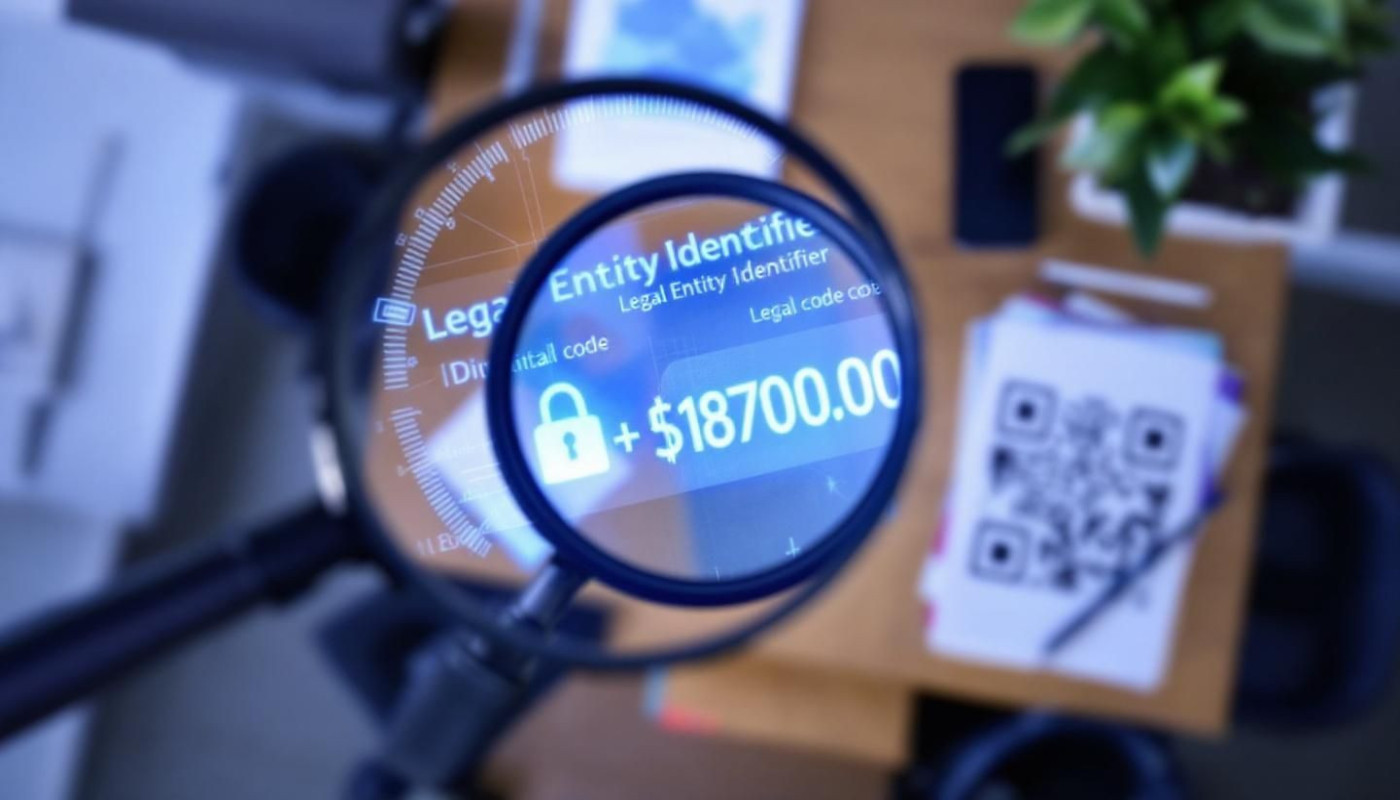Table of contents
In today’s interconnected global marketplace, business operations demand transparency, efficiency, and compliance. Navigating this complex landscape can be challenging, especially when interacting with financial institutions and regulatory bodies. Discover how obtaining a Legal Entity Identifier (LEI) can transform your company’s credibility and streamline transactions, making your business operations smoother and more secure.
Understanding the legal entity identifier
The legal entity identifier, often abbreviated as LEI, is a unique company identifier designed to improve transparency within global financial markets. Structured as a 20-character alphanumeric code, the LEI is based on the ISO 17442 standard, which ensures consistent and reliable identification of legal entities engaged in financial transactions worldwide. Each LEI contains key reference data about the entity, such as its registered name, address, and ownership details, enabling clear verification of counterparties in complex financial systems. LEI registration has become a fundamental aspect of regulatory compliance, particularly as authorities across jurisdictions require its use for reporting and risk management purposes. This mandate stems from the need to prevent systemic risks and financial fraud, especially following the global financial crisis. By establishing a globally harmonized approach, the legal entity identifier fosters greater trust and efficiency in cross-border transactions, supports regulatory oversight, and simplifies processes for both regulators and participants in the global financial markets.
Improving transparency and trust
The widespread adoption of a Legal Entity Identifier (LEI) dramatically strengthens business transparency by enabling precise entity verification in every financial transaction. When each organization possesses a unique LEI, stakeholders—including partners, investors, and regulators—can instantly confirm the identity and legal status of any counterparty. This direct access to a trusted global database of registered entities helps diminish counterparty risk, as it significantly reduces the chance of misidentification or engagement with fraudulent entities. Enhanced anti-fraud measures are achieved by using the LEI system to cross-reference and validate information, presenting a powerful deterrent against illicit activity. Among the most recognized LEI benefits is the facilitation of secure and open business environments, where trusted business identities are the standard, not the exception. This robust framework not only meets regulatory expectations but also builds a foundation of confidence and reliability in market interactions.
Streamlining cross-border transactions
Securing a Legal Entity Identifier (LEI) offers a clear advantage for businesses engaged in cross-border transactions. An LEI provides a standardized and globally recognized method of identifying legal entities, making international business dealings more transparent and trustworthy. According to the director of international operations, the LEI ensures that counterparties are easily and accurately identified, which accelerates verification processes and fosters compliance with regulatory requirements. This uniform identification significantly enhances operational efficiency, minimizing the time spent on due diligence and reducing paperwork and manual checks. The result is greater settlement efficiency and the ability to achieve faster settlements, which is highly beneficial for global business operations. By removing ambiguity in entity recognition, the LEI advantages extend to reduced administrative burdens and smoother collaboration across borders, ultimately supporting seamless and scalable international business growth.
Facilitating regulatory compliance
The Legal Entity Identifier (LEI) system plays a pivotal role in supporting organizations seeking to achieve regulatory compliance across various jurisdictions. Financial regulation is constantly evolving, and businesses must adapt to shifting international standards to maintain seamless cross-border operations. The LEI acts as a universal reference for identifying legal entities involved in financial transactions, enabling effective LEI reporting and supporting regulatory harmonization worldwide. By leveraging the unique global identifier, companies can streamline due diligence processes, automate compliance monitoring, and meet disclosure requirements set by authorities in multiple countries. As regulators demand greater transparency in areas such as anti-money laundering, transaction reporting, and counterparty risk assessment, the use of an LEI has become indispensable for demonstrating ongoing adherence to compliance obligations. To obtain or renew an LEI and ensure robust regulatory compliance, organizations can utilize trusted service providers such as lei.
Enhancing data management and reporting
Incorporating a Legal Entity Identifier (LEI) into data management systems streamlines the process of collecting, validating, and sharing entity information across diverse platforms. LEI integration directly supports data consistency by providing a universal reference point, which minimizes discrepancies and enhances data interoperability within and outside the organization. For chief data officers aiming to uphold data quality, the LEI acts as a cornerstone, facilitating accurate reporting and reducing the risk of human error in both internal and external reporting processes. This unique identifier not only simplifies the aggregation and reconciliation of complex datasets but also supports data integration across various business functions, enabling seamless collaboration with partners and regulatory bodies. As a result, organizations can leverage business intelligence tools with confidence, knowing that strategic decisions are grounded in verified, unified, and reliable data. The transparency provided by the LEI framework empowers businesses to respond quickly to compliance requirements and market changes, ensuring a competitive edge in today’s data-driven landscape.
Similar articles



